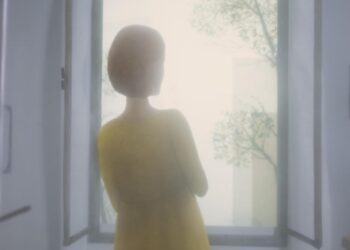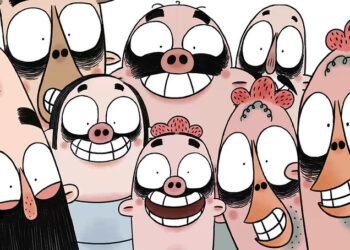I had the privilege of interviewing director Sunao Katabuchi about his new anime film In This Corner of the World. He told me all about the process of bringing this stirring war film to the screen:
Translator: Junko Goda
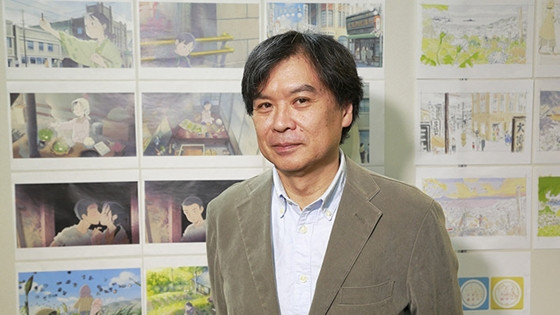
How did you get the inspiration for this film?
I get asked this question pretty often so I am going to change it up a bit. My previous movie was Mai Mai Miracle and that takes place in 1955 in Yamaguchi Prefecture, and so I realized that there were people ten years prior to that story. And I started getting curious about what their lives were like ten years prior, and I started realizing that wartime is a difficult time to comprehend for people today.
I was born in 1960 and Mai Mai Miracle takes place in 1955 so there’s not much of a huge time gap. But then you go all the way back to 1945 and that becomes a different world all together. Socially it was different. For example, the clothing being worn was different. Yes, so I wanted to go back another ten years prior to when Mai Mai Miracle takes place and look at that time.
That’s very interesting. I noticed there is a great attention to the details of everyday life during the war in Japan. What kind of research did you do for this?
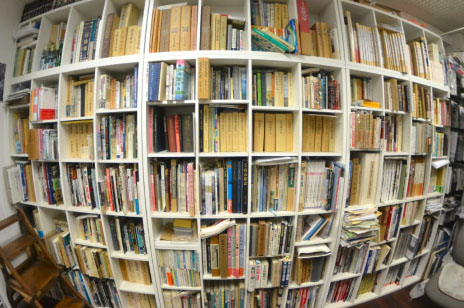
A very difficult question because we were recreating a world. So as you can see all the bookshelves and the books. This isn’t actually all the books that I bought for research In this Corner of the World. This is only a portion of it and a lot of the other research is on a hard drive in addition to these books.
I really had to think about every aspect of daily life that needed to be researched. What material was the clothing made out of? What color was it? At that time there was no silk, so what were they using instead? How were they doing laundry? Toothpaste? Toothbrushes? So that’s the level of research we’ve been doing. Used book stores, libraries.
I have a friend who is a collector of vintage magazines and so I had them to look at magazines from that era and look at what kind of articles are in there. So we used many different kinds of resources to research and then writings from that time. Government, military, records, and also personal journals too. All of these together create the film.
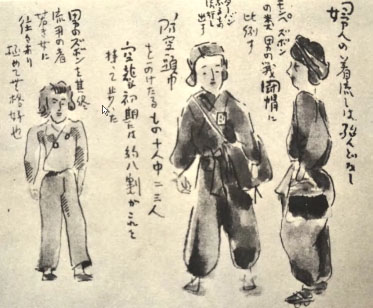
What’s great about these personal journals is that it’s not a retelling of something that happened 10 years ago. They are writing it right away. So that moment in time is captured very accurately without getting muddled by loss of memory over time.
A junior high schooler. These are some of the sketches from her journal. What’s important is all these appliques of flowers and animals on their personal items. Any wartime TV movie coming out of Japan you don’t see this. This is a lot more reliable about what actually a girl or teen, a woman in their 20s would have actually had.
They weren’t a completely different species of humans or anything. So even if it is ten years before Mai Mai Miracle takes place you still have many similarities, commonalities. So we wanted to really confirm that so that was the largest part of our research.
With Suzu, she is a very traditional character in a traditional marriage. What do you hope modern viewers take from her story?
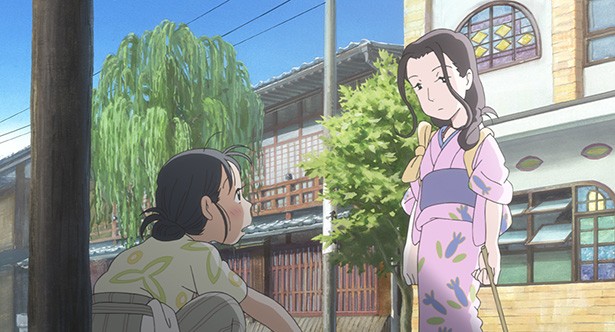
First I want them to understand there are people of different cultures in the world. For Japanese people today that kind of marriage is nonexistent. But regardless of that I feel there are commonalities that even a modern person would have with Suzu. There is a common thread everyone around the world shares with Suzu even though there are cultural differences there are still similarities.
I feel that is the moment you can go beyond cultural differences, languages and that there are things we all share in common. So that’s important to see those differences at the beginning and then to recognize those differences and go beyond that to see the areas that we’re not different.
I know I’m repeating myself, but this also applies to people in Japan who watch this too – not just outside of the country. Just because you are not Japanese, an American audience, it does not preclude folks from understanding it. This is pretty different even for Japanese people too! But I feel that going on this journey with Suzu as your guide that you will get to the final point of we’re not that different after all.
Just receive it as a time machine to be able to go to a different time and place. I feel that if you are on this time machine and in this place where you are not familiar with anything, but at the end of the journey to find yourself familiar with some of the common themes we share with humans, it is a good experience.
Food is an important part of the film. Why was that so important for you to share about how she made the recipes and things like that?
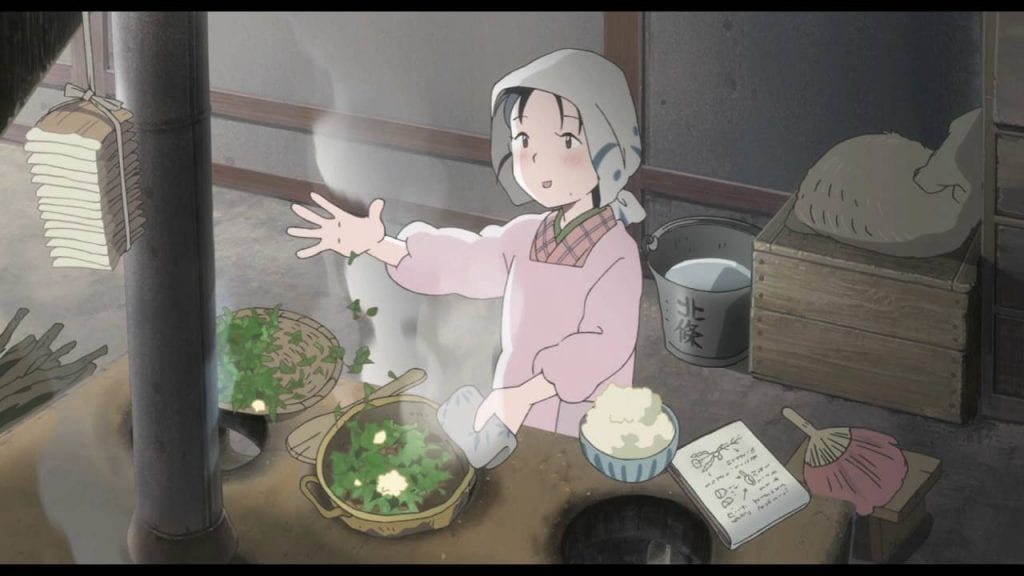
Food for me is a symbol of and representative of everyday life so that’s why it was important for me to focus on that. I really enjoy the explanation of the food. It’s very interesting for me. On the other hand, some people question why so food focused in the movie? But then you have to remember in the context of wartime when you have limited resources food for even the simplest of dishes ends up being very precious.
The changing of values about things during war times I think is the important aspect of how food plays in the movie. We actually made the food that Suzu makes and we ate it. We concluded that there was probably a lack of salt at the time so we didn’t use any salt. We really understood the importance of salt!

I felt that it was Suzu and her family’s experience of food because we were able to have a first hand experience of what the food was like and cooking without salt. We wanted to experience what Suzu was actually experiencing so we made nori and other foods. It was interesting how heavy it was to lift the buckets full of water. How would you end up walking while carrying them. Some things you can’t think about, you have to do it to understand it.
What do you think the movie and Suzu’s story says about art?
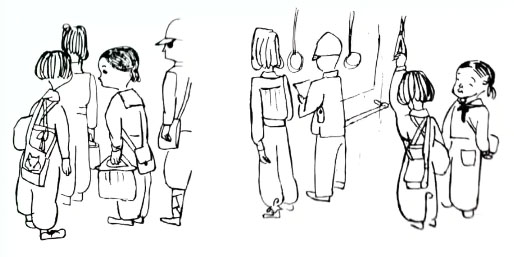
That’s a pretty difficult question. So originally this was based from the manga by Fumiyo Kono and we wanted to keep the style as much as possible. But in that world Suzu draws so we needed to portray her drawing within a drawing. So it does get technical.
We did ask Ms. Kono to do some drawings so we had some drawings to go off of. (Shows drawings). I wanted to also have this story that Suzu draws within the story. So it was actually a pretty fun process. I wanted to maintain the softness that Kono has and then weave that into the style of the anime as well.
We recreated things that actually existed. That is actually all the examples of the buildings that existed. It might seem impossible, but we did it! It was a very long process.
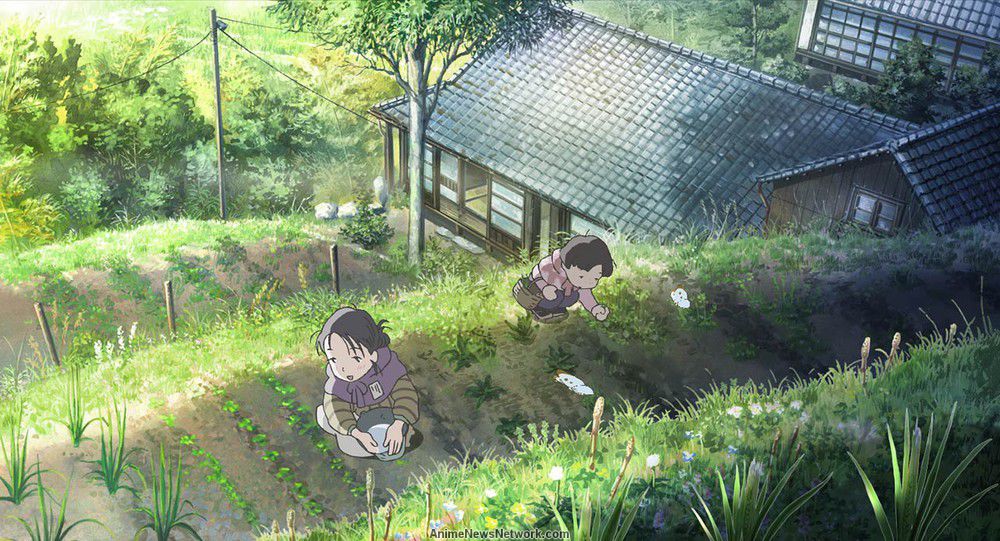
Why does Suzu decide to go back to Hiroshima at the end?
At the end Suzu does go back to Hiroshima to go find her family and see if any of them have survived, but then she realizes her new home is Kure so she goes back to Kure. Kure was the place for her she discovered for herself is her home.
At the beginning of the journey she goes to Kure but almost not by choice. It’s just how things happen, but then at the end she makes a very conscious decision about going to Kure.
How long did it take you to do the animation, to make the film?
Conception was August 2010. We finished October 2016. So it is a very long process. Six years and two months.
Congratulations on a beautiful film!
Edited by: Hannah Wilkes




